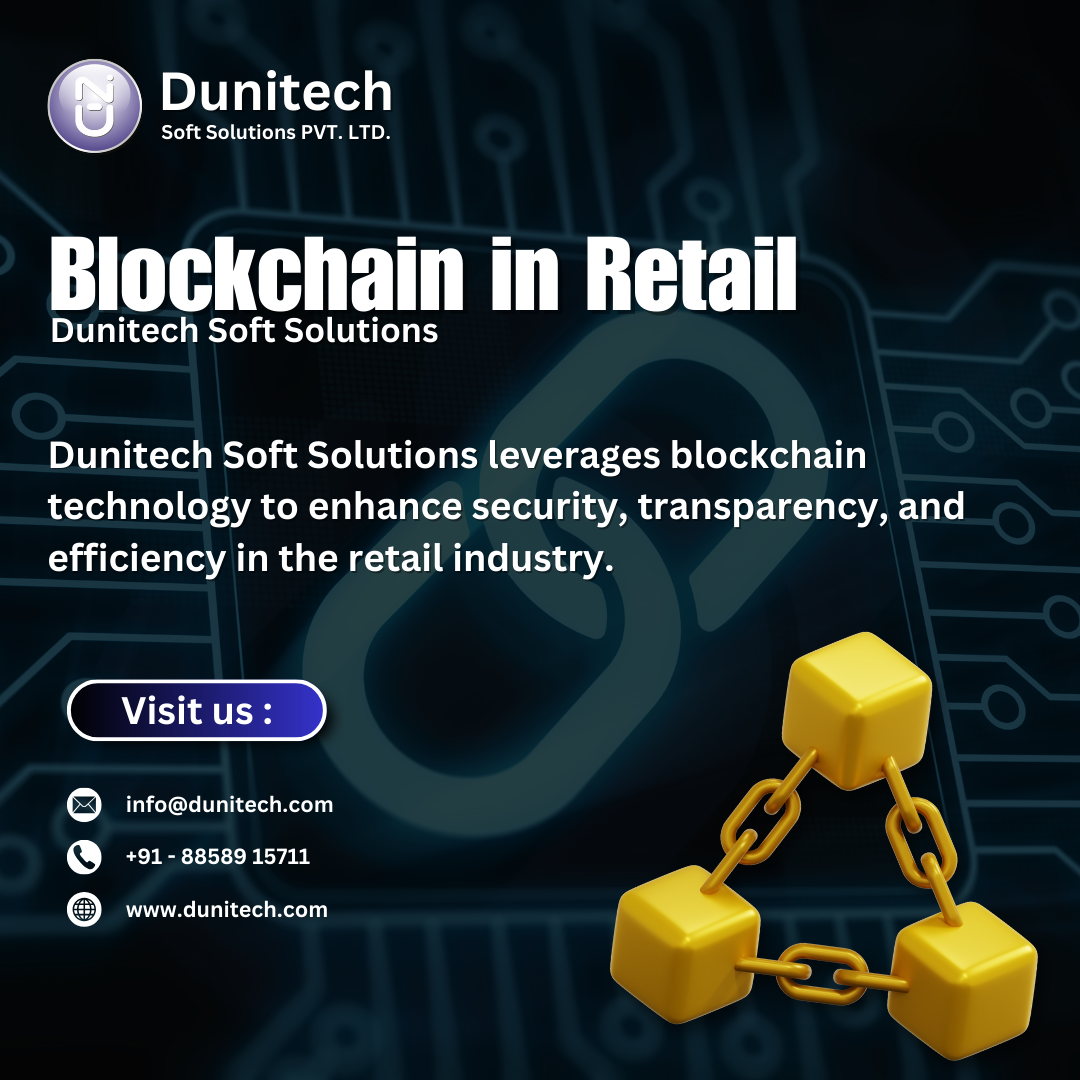In the fast-paced world of retail, transparency, security, and efficiency are crucial. Enter blockchain—a decentralized technology poised to reshape how retail operates from inventory tracking to customer engagement. While originally synonymous with cryptocurrencies, blockchain has now carved a strong niche in sectors like healthcare, finance, and retail. This post explores how blockchain in retail, particularly in the retail supply chain, is ushering in a new era of trust and accountability.
Blockchain in Retail: An Overview
Retail businesses face countless challenges—fraud, data breaches, and inefficient logistics, to name a few. Blockchain introduces a transparent and immutable ledger system that records every transaction securely. It offers a decentralized infrastructure where product origins, customer transactions, and supplier interactions can be verified without intermediaries.
Retail giants like Walmart, Amazon, and Carrefour have already begun integrating blockchain to ensure product authenticity and streamline logistics. But the benefits aren’t limited to large corporations—mid-sized and emerging retailers can also harness blockchain to build consumer trust and operational efficiency.
Key Blockchain Applications in Retail
Here are the most impactful blockchain applications in retail:
1. Supply Chain Transparency
Blockchain enables end-to-end visibility across the supply chain. Retailers can trace the origin of every product, from raw materials to final delivery. This is especially crucial for sectors like grocery, fashion, and pharmaceuticals, where provenance and safety matter.
2. Counterfeit Prevention
Luxury and pharmaceutical retailers face huge losses due to counterfeit goods. Blockchain ensures product authenticity by assigning unique digital certificates to every item, helping consumers verify genuine products before purchase.
3. Efficient Inventory Management
By recording transactions in real-time, blockchain helps retailers manage stock levels more accurately. Smart contracts can automate restocking processes and reduce inventory mismatches.
4. Frictionless Payments and Loyalty Programs
Blockchain-based payment systems provide faster, more secure transactions with reduced processing fees. Additionally, token-based loyalty programs can enhance customer engagement and offer better reward transparency.
5. Ethical Sourcing and Sustainability
Modern consumers are concerned about ethical sourcing. Blockchain records can verify whether goods are ethically produced and environmentally friendly, helping retailers build brand integrity and meet ESG goals.
Blockchain in Retail Supply Chain
When it comes to the retail supply chain, blockchain has the power to eliminate long-standing inefficiencies:
- Real-Time Shipment Tracking: Retailers can track goods at every stage, improving ETA accuracy and reducing lost shipments.
- Smart Contracts: Automatically enforce agreements between suppliers, logistics partners, and retailers—removing manual delays and disputes.
- Data Sharing Across Stakeholders: All parties (producers, manufacturers, transporters, retailers) access a shared ledger, increasing collaboration and accountability.
- Reduced Fraud and Theft: Immutable records make it difficult to tamper with shipment or inventory data.
For example, using blockchain, a fashion retailer can ensure that a cotton shirt sold in New York was grown sustainably in India, manufactured ethically in Vietnam, and shipped securely—backed by blockchain entries at each stage.
Conclusion
The integration of blockchain in retail is more than a technological upgrade—it's a paradigm shift toward transparency, efficiency, and consumer trust. Whether through enhanced supply chain operations, secure payment processing, or product authenticity verification, blockchain offers unmatched advantages to modern retailers.
As more businesses adopt this technology, the retail sector will evolve into a more intelligent, responsive, and customer-centric ecosystem. At Dunitech Soft Solutions, we are at the forefront of helping retailers implement blockchain solutions tailored to their unique needs—empowering them to thrive in a digital-first world.






Comments